|
A few photos of me reading Carlton Reid's excellent book, Roads Were Not Built for Cars." To anyone who does not already own this book, I highly recommend it! An in-depth history of transportation networks, it's a must-read for cyclists and motorists alike!
Wheelman's Song.
OH, the knights of the olden time Were brave and strong and true, And they loved their faithful steeds, My wheel, as I love you. And swiftly forth they rode, Some knightly deed to do, To win their lady's praise, And for her hand to sue. Knight of the wheel am I, My lady's eyes are blue; I kneel to kiss her hand; She whispers, "I'll be true." --Greylock. "Wheelman's Song." Outing and The Wheelmen. December 1883. p. 192 The following article deals with a topic which I try to explain to people all the time. Some people just refuse to understand that DIGITIZING SOMETHING DOES NOT PRESERVE IT!
http://www.themarysue.com/digital-dark-ages/ Digitization might increase access while those digital records are accessible, but that is not the same as preserving something for future generations. (It's not even necessarily the same as preserving it for future years of one's own lifetime.) It's incredibly frustrating to be dismissed when I explain that tangible artifacts and physical books are inherently more effective methods of preserving data than any methods which the digital world has yet produced or is likely to in the foreseeable future. Gabriel added the following commentary to what I had written above, and I agree with him wholeheartedly: "One of the many problems with migrating digital materials is that formats, software, and hardware are all changing at once, and getting behind on the curve of any one of these can make it virtually impossible to copy the digital data and make it readable for whatever configuration is current at the time. So, trying to preserve digital data for the long run involves constant vigilance. Additionally, each migration potentially removes or changes information - formatting which one word processor encodes can be very different when migrated to another version of the software, and after a few migrations you are often left with only rudimentary fidelity to the original document in appearance and layout. Text can be preserved more easily, but there is so much information encoded in the way things are presented that it doesn't make sense to dismiss it as unimportant. I could go on and on - this is a big and recognized problem for archivists!" In my upcoming book, This Victorian Life I address the topic of incidental information inherent in physical objects which gets lost in the digitization process. Here is an excerpt: "[P]hysical objects do have advantages over their electronic equivalents. One interesting example of this is their ability to preserve and transmit incidental information. When Gabriel was in library school, one of his professors told a particularly interesting story about the sort of information which gets completely lost when something is digitized. The tale as he told it, ran thus: An archivist was monitoring the collection of a major institution when a researcher came in requesting a number of documents. The archivist found them in storage, noticed that they were letters from various places, and brought them out to the researcher without noticing anything extraordinary. The archivist returned to his desk, but soon he noticed the researcher behaving very strangely. The man would pick up a letter, check the date, hold it to his face and inhale deeply, then sort it into one of two piles he was stacking without reading it. When the piles had grown fairly high and the man still hadn't read a single letter, the archivist's curiosity finally got the better of him. "What on earth are you doing?" he asked. The researcher looked up and smiled. He explained that he was an epidemiologist researching the history of a particular outbreak. At the time of the disease he was studying, letters out of quarantined areas would be disinfected with vinegar before being passed along in the post. The scent was still discernible many years later, and he was smelling for it to determine which letters merited further investigation. People would often specifically avoid mentioning outbreaks in their words; the text of the letter might be something as innocuous as "You'll be happy to know that our business is thriving!" In the context of an outbreak, however, those words can have very different implications. Digitizing the letters would have stripped them of this context, and thus a significant portion of their meaning. All people live surrounded by details they don't necessarily consider, or even notice. Yet sometimes those seemingly trivial points provide the greatest insight into a situation." --This Victorian Life coming from Skyhorse Publishing, November 2015. These marvelous Victorian poems about the quarrels of an old married pair will appear in the "Sweethearts, Old and New" section of my upcoming book, True Ladies and Proper Gentlemen. Enjoy! Betsey And I Are Out By Will M. Carleton Draw up the papers, lawyer, and make 'em good and stout; For things at home are cross-ways, and Betsey and I are out. We who have worked together so long as man and wife, Must pull in single harness the rest of our nat'ral life. "What is the matter?" say you. I vow! It's hard to tell: Most of the years behind us we've passed by very well.; I have no other woman - she has no other man, Only we've lived together as long as ever we can. So I've talked with Betsey, and Betsey has talked with me; And we've agreed together that we can't never agree; Not that we've catched each other in any terrible crime; We've been a gatherin' this for years, a little at a time. There was a stock of temper we both had for a start; Although we ne'er suspected 'twould take us two apart. I had my various failings, bred in the flesh and bone, And Betsey, like all good women, had a temper of her own. The first thing I remember whereon we disagreed, Was somethin' concerning heaven - a difference in our creed. We arg'ed the thing at breakfast - we arg'ed the thing at tea - And the more we arg'ed the question, the more we didn't agree. And the next that I remember was when we lost a cow; She kicked the bucket, certain - the question was only - How? I held my own opinion, and Betsey another had; And when we were done a talkin', we both of us was mad. And the next that I remember, it started in a joke; But full for a week it lasted, and neither of us spoke. And the next was when I scolded because she broke a bowl; And she said I was mean and stingy, and hadn't any soul. And so that bowl kept pouring dissentions in our cup; And so that blasted cow-critter was always comin' up; And so that heaven we arg'ed no nearer to us got; But it gave us a taste of somethin' a thousand times as hot. And so the thing kept workin' and all the self-same way; Always somethin' to arg'e, and somethin' sharp to say. And down on us come the neighbors, a couple dozen strong, And lent their kindest service for to help the thing along. And there has been days together - and many a weary week, We was both of us cross and spunky, and both too proud to speak, And I have been thinkin' and thinkin' the whole of the winter and fall, If I can't live kind with a woman, why, then I won't at all. And so I have talked with Betsey, and Betsey has talked with me, And we've agreed together that we can't never agree; And what is hers shall be hers, and what is mine shall be mine; And I'll put it in the agreement, and take it to her to sign. Write on the paper, lawyer - the very first paragraph- Of all the farm and live stock, that she shall have her half; For she has helped to earn it, through many a dreary day, And it's nothing more than justice that Betsey has her pay. Give her the house and homestead; a man can thrive and roam, But women are skeery critters, unless they have a home. And I always have determined, and never failed to say, That Betsey should never want a home, if I was taken away. There's a little hard money that's drawin' tol'rable pay; A couple hundred of dollars laid by for a rainy day; Safe in the hands of good men, and easy to get at; Put in another clause, and give her half of that; Yes, I see you smile sir, at my givin' her so much; Yes, divorce is cheap, sir, but I take no stock in such. True and fair I married her, when she was blithe and young; And Betsey was al'ays good to me, except with her tongue. Once, when I was young as you, and not so smart, perhaps, For me she mittened a lawyer, and several other chaps; And all of 'em was flustered and fairly taken down, And I for a time was counted the luckiest man in town. Once, when I had a fever - I won't forget it soon - I was hot as a basted turkey and crazy as a loon - Never an hour went by when she was out of sight; She nursed me true and tender, and stuck to me day and night. And if ever a house was tidy, and ever a kitchen clean, Her house and kitchen was as tidy as any I ever seen; And I don't complain of Betsey or any of her acts, Exceptin' when we've quarrelled and told each other facts. So draw up the paper, lawyer; and I'll go home to-night, And read the agreement to her and see if it's all right. And then in the mornin' I'll sell to a tradin' man I know- And kiss the child that was left to us, and out in the world I'll go. And one thing put in the paper, that first to me didn't occur- That when I'm dead at last, she shall bring me back to her; And lay me under the maples I planted years ago, When she and I was happy, before we quarrelled so. And when she dies, I wish that she would be laid by me; And lyin' together in silence, perhaps we will agree; And if ever we meet in heaven, I wouldn't think it queer If we loved each other the better because we quarrelled here. *** How Betsey And I Made Up Give us your hand, Mr. Lawyer; how do you do today? You drew up that paper - I suppose you want your pay. Don't cut down your figures; make it an X or V; For that 'ere written agreement was just the makin' of me. Goin' home that evenin' I tell you I was blue, Thinkin' of all my troubles, and what I was goin' to do; And if my hosses hadn't been the steadiest team alive, They'd tipped me over, certain, for I couldn't see where to drive. No - for I was laborin' under a heavy load; No - for I was travelin' an entirely different road; For I was a-tracin' over the path of our lives ag'in, And seein' where we missed the way, and where we might have been. And many a corner we've turned that just to quarrel led, When I ought to've held my temper, and driven straight ahead; And the more I thought it over the more these memories came, And the more I struck the opinion that I was the most to blame. And things I had long forgotten kept risin' in my mind, Of little matters betwixt us, where Betsey was good and kind; And those things flashed all through me, as you know things sometimes will When a feller's alone in the darkeness, and everything is still. "But," says I, "we're too far along to take another track, And when I put my hand to the plow I do not oft turn back; And tain't an uncommon thing now for couples to smash in two;" And so I set my teeth together, and vowed I see it through. When I come in sight of the house 'twas some'at in the night, And just as I turned a hill-top I see the kitchen light; Which often a han'some pictur' to a hungry person makes, But it don't interest a feller that's goin' to pull up stakes. And when I went in the house, the table was set for me- As good a supper's I ever saw, or ever want to see; And I crammed the agreement down my pocket as well as I could, And fell to eatin' my victuals, which somehow didn't taste good. And Betsey, she pretended to look about the house, But she watched my side coat-pocket like a cat would watch a mouse; And then she went to foolin' a little with a cup, And intently readin' a newspaper, a-holdin' it wrong side up. And when I'd done my supper, I drawed the agreement out, And give it her without a word, for she knowed what 'twas about; And then I hummed a little tune, but now and then a note Was busted by some animal that hopped up in my throat. Then Betsey, she got her specs from off the mantel-shelf, Then read the article over quite softly to herself; Read it by little and little, for her eyes is gettin' old, And lawyers' writin' ain't no print, especially when it's cold. And after she'd read a little, she gave my arm a touch, And kindly said she was afraid I was 'lowin' her too much; But when she was through she went for me, her face a-streamin' with tears, And kissed me for the first time in over twenty years! I don't know what you'll think, Sir - I didn't come to inquire- But I picked up that agreement and stuffed it in the fire; And I told her how we'd bury the hatchet alongside of the cow; And we struck an agreement to never have another row. And I told her in the future I wouldn't speak cross or rash If half the crockery in the house was broekn all to smash; And she said, in regards to heaven, we'd learn to try its worth By startin' a branch establishment and runnin' it here on earth. And so we sat a'talkin' three-quarters of the night, And opened our hearts to each other until they both grew light; And the days when I was winnin' her away from so many men Was nothin' to that evenin' I courted her over again. Next mornin' an ancient virgin took pains to call on us, Her lamp all trimmed and a burnin' to kindle another fuss; But when she went to pryin' and openin' of old sores, My Betsey rose politely, and showed her out-of-doors. Since then I don't deny but there's been a word or two; But we've got our eyes wide open, and know just what to do; When one speaks cross the other just meets it with a laugh, And the first one's ready to give up considerable more than half. Maybe you'll think me soft, Sir, a-talkin' in this style, But somehow it does me lots of good to tell it once in a while; And I do it for a compliment - 'tis so that you can see That that there written agreement of yours was just the makin' of me. So make out your bill, Mr. Lawyer; don't stop short of an X; Make it more if you want to, for I have got the checks. I'm richer than a National Bank, with all its treasures told, For I've got a wife at home now that's worth her weight in gold. These poems and other nineteenth-century writings about relationships will appear in my upcoming book,
True Ladies and Proper Gentlemen —now available for pre-order from Barnes and Noble and Amazon! The following wonderful work of fiction was written for this very holiday back in the late Victorian era. Its themes of mystifyingly rapid changes in communication and of lovers' misunderstandings remain charmingly pertinent today. I am proud to say that it will appear in my upcoming book, True Ladies and Proper Gentlemen. Happy reading! The Story of An Old Letter By Olivia Lovell Wilson, 1891 (Fiction) Part I. THE LETTER It was a quaint old desk, with its numberless little drawers promising mystery, and the brass knobs that caught the firelight and winked and twinkled back at the cheery blaze. A jolly inspiriting old piece of furniture, it had never grown dim in its polished oak, with all the years that had passed over it since Rosemary Alden's grandmother sat before it, writing her epistles. But quite in contrast to its jovial smile at the wood-fire was Rose Alden's countenance today, as she sat, her chin upon her plump little hand, discontent making a furrow in her smooth brow. Her pen lay across a finished letter, and she knew her words had been cold and hard as the steel pen she had used. She was not pleased with herself or the world, and least of all with the person to whom this letter was to bring gloom and dispair. She had tried to forgive him, she thought, and yet such careless neglect before marriage, when he should not have divided "a minute into a thousand parts, and break the thousandth part of a minute in the affairs of love"! What did it bode for her future? So she said a few bitter words, and before he could explain or protest, conventionality had stepped between and they were forced to remain in mute discomfort through a long dinner given for their express honor as the happy betrothed. He had written, the next day, too anxious to wait until they met; and pretty Rose, before her grandmother's desk, had just penned her cruel answer. Sitting there in gloomy meditation, the maiden was so like a portrait on the wall that many people believed it to be Rose, clad in the costume of long ago. But, if one looked closely, it was not hard to discern a milder spirit in the eyes of the portrait, and a deeper glint of red in the golden hair. This was another Rose Alden, who years ago had tasted life's first sweet pleasures, and, just as she was about to wed, had fallen asleep and been laid to rest beneath the snows. The Rose Alden of today lifted, to her namesake's picture, eyes that were filled with tears. This Aunt Rose had been her grandmother's favorite sister, and when, years after, the little granddaughter came home to gladden her heart, she named her Rose. Then, strangely enough, a grandson of that wooer of the first Rose had appeared to woo and win her nineteenth-century counterpart, and grandmother's satisfaction had been deep and intense. But all this was over now! Rose began to fold her letter, when, suddenly her eyes fell upon the calendar. It was February 14th - St. Valentine's Day! The day he had laughingly said he would send her some proof of his love. And even that was forgotten! She closed her small teeth sharply, felt her grievance more than she could bear, and then a great tear fell on the folded letter lying beside its envelope, primly addressed to Walter N. Deane. Another tear followed the first, and then down went the bright head, and she sobbed aloud. Presently she looked up proudly, dashed her tears aside, and took from a little secret drawer a small bundle of faded letters, tied with a pale-blue ribbon. Often had she thought she should look at them after love had been revealed to her, but a sweet delicacy had withheld her before; she had been too happy to think of it. Now she wondered how that other Walter Deane had written to the other Rose. Slowly she turned over the quaintly-sealed letters, the seals broken by impatient hands that long since had folded over peaceful bosoms. She found Walter Deane's letters and several from Rose to him. All were there together, worded briefly but full of love. Then Rose found one that made her tears fall fast; she read it twice, and her heart grew soft and more kindly toward her absent lover, yet she strove hard to retain her old spirit of defiance. Why should she attribute to this Walter Deane what his namesake never had possessed? Yet surely, if gentle Aunt Rose could say "I am wrong," might not she also be wrong and hasty in her judgement? At this moment, Rose saw the postman coming up the street. In a second, her quick hands had dashed the sheet into the envelope. She caught up some other letters, one or two of which had been written by her grandmother, and gave them to that angel of our daily life, the penny-postman, and one more letter had gone to leave its mark upon a soul. "It is done, and I am glad," said Rose, defiantly. But she avoided the gentle eyes of the portrait and put the yellow love-letters carefully away, having picked one or two up from the floor, where her impetuous movement had hurled them. Then she closed the desk and left the room. "What will happen now?" crackled the wood-fire, pleasantly; and the desk, despite its advanced age, winked from one of its brass knobs, as if to reply: "Wait and see!" Part II WHAT HAPPENED TO THE LETTER Someone has said I am to tell my own tale; so here I am, and I will begin at once by saying I am an old musty love-letter. I am not going to boast of my age, for I remember distinctly Mr. Byron once said something about age being good for wine, but very bad for women; and I fancy it would be much the same with old love-letters. Still, I am led to think without egotism that I have served my time twice, as one may say after reading of my late adventure. It was never intended that I should be mixed up with the hurly-burly busy times into which I was plunged; but I had grown very weary of the pale-blue ribbon that bound me with a small company of bosom companions, and had determined, by using one of my last sighs, to break the bond that held me, when a pretty white hand unloosed the ribbon, and after holding me a while to be read, laid me down among a number of spick-span new white ragged-edged wrappers. All were addressed, and I was returning to my well-worn folds, with the name "Mr. Walter Deane" on my yellow side, for I had always held it my duty to keep in seemly folds the contents of my written sheets, when the owner of that pretty hand laid her head upon me tenderly. I saw her weep, and then I felt that one of the new letters had hidden me from her view. Suddenly we were all snatched up together, and I felt the cold air upon me and heard a gruff voice say: "Oh, yes, they will all get into the fast mail!" "Ah!" I sighed, "that means the stage and coach-and-four instead of the saddle-bags-and-one." I was very much pleased to hear we were going by the fast mail, for I was beginning to feel nervous about getting out into the world again in time to see something of it before I really got too old to enjoy myself - although, for that matter, there is a tea-pot of my acquaintance that is so old she is cracked, yet she tells me she is invited to all the fashionable afternoon-teas for miles. But then she belonged to Mr. James Madison's great-aunt, which may account for her popularity. Family blood will tell, you know, and that is one reason I've always felt I belonged to the Aldens. But pardon this digression. The owner of the gruff voice took us all to a big building where there were so many letters that I was sure it must be the only large place in the world where all letters come and are distributed. But I found in this I was mistaken, for I passed through others quite as large. The parcel I was in was seized upon by a wild-eyed youth, who first read this address, then that, and flung the letters into piles in the most careless manner. I clung to my companion, a shiny envelope addressed like myself, for I feared this youth would not let me pass; for what would he know about the Walter Deane I held a message for, since he was so young? Besides, I was bewildered by many new sights and sounds, and most of all by the new envelope, which also bore my name in a clear hand. We were soon tied up in a bundle with fifty other letters, and then thrown among hundreds in a big bag. Think of it - one in a hundred! When in my day I had gone as a select number of twelve. I must confess I did not enjoy the mixed company I was in. Wrappers blue, green and yellow - not yellow from honorable age, as I was, but a pert fresh yellow - and no seals to speak of; and one very smart pink wrapper had the impertinance to tell me that people stick their letters together by using their tongues - as if I would believe such an absurd statement! I may have looked elderly, but I'm sure I'm not a dunce to be taken in by such chaff. We were finally plunged into a great leather bag that went together with a snap, and then the wild-eyed youth said: "Here, Jim, you'll have to hustle this mail, or it will be behind time." "Hustle?" thought I. Now, what does "hustle" mean? It must be a new stamp they have made. But I soon found out what it meant. The bag was taken out and hung on a long wooden arm, and soon I heard the most horrid shrieking, and, a long way off, saw a frightful-looking monster coming toward us, smoke pouring from its head and fire flashing from one huge eye. Nearer and nearer he came, and then every fibre in my being thrilled with fear, as all at once there was a fearful rush and snatch, and we were landed all in a heap, devoured by the horrid monster, which rattled on as unconcerned about the damage -as I thought - that he had done, as if it were a daily pastime. "There!" gasped my near neighbor. "We did catch the fast mail." "What is the fast mail?" I asked. A very small square epistle near me rustled about a little and said contemptuously: "Don't you know? Why, it is the fast train that carries the mail. The Flyer, don't-cher-know? Weren't you ever on a train before?" "Never," I replied, too amazed to be angry with the flippant tone; "there was nothing of the kind in my day." "And when was that?" said the young Pert. "Nigh on a hundred years ago. We moved slower then. Sweet Rose Alden spent days in penning the love-message I carry, and the quill she used was sadly abused by her pearly teeth, as she nibbled its feathers and thought of her lover. Then I was carefully folded and pressed by her dainty fingers, and a seal with a Cupid design pressed on my back. Then I was sent with a few others in a pair of saddle-bags thrown across the horse ridden by the carrier. We plodded alongh over mud roads and not a few corduroy ones too." "And what's a corduroy road?" asked young Pert. "Why, don't you know what sort of road that is? Where did you come from, not to know that?" I asked, thinking it as well to snub him a little. But at this moment my close companion spoke to me seriously. "My friend," said he, "are you also addressed to Walter Deane?" "I am," I replied. "Then I have decided to sacrifice myself for the sake of sweet Rose Alden," said he, solemnly. "Will you kindly explain?" I asked, politely. "Yes. I contain a message of unkindness for Walter Deane, from sweet Rose Alden. Almost before I was finished, she was sorry for having written me. I am not a cold-blooded creature. The spirit of repentance had already permeated me, even though I appear stern and forbidding. Tell me: do you not convey a tender message in your bosom?" "I do; but alas! It was written by one who is long since dead. I am a hundred years old." "Love - true love - never dies," quoth my new friend. "Your message will reach him as sweetly today as it touched its owner years ago. I do not mean to reach him. Let us change envelopes; then I shall cast myself in some odd corner and be sent to the Dead Letter Office, while you shall go to him, old as you are, and take him peace. Do you agree?" "With all delight. But you surprise me. I find the romance of the past in this day of fast mails and hustlers. Are you in earnest?" "Never more so. Learn, my friend, that progress can never change love, because its source is infinite and omnipotent. If you agree, I will say goodbye at once and detach myself from you. Then I shall soon become a dead letter." At this moment, I felt a pain in my side, then found myself surrounded by "hustlers." I was confused, sad, and felt my end had come, when I was suddenly handed out in the light of a broad sunbeam and heard a cheery voice say: "Here is a letter for you, Mr. Deane." Then I was opened by a resolute hand, and I delivered my message: "MY DEAR WALTER: It sorely grieves me to think how I misunderstood thee yester-e'en. I am sorry. I think I was very wrong, and ask that thou forgive me. Perhaps we both were hastie. I cannot tell, but this I doe know: I love thee, and cannot live without thy love. Ever thy own, Rose." *** The old desk winked with jovial hilarity from every corner of its polished surface, and the wood-fire crackled until it seemed to chuckle with pleasure, when in the twilight it cast its flame over the yellow paper of the old love-letter, and together Walter and Rose read again the gentle message of reconciliation. "And you never got my other note?" asked Rose, resting her pretty chin against his shoulder. "No, my darling. This came after your few sharp words. I thought it your own sweet mode of showing me my own fault." "No, no; I was to blame. But I wonder where the other letter went? I must have put the old one in the new envelope. How strangely it has all happened!" But the sweet eyes of the portrait, the yellow love-letter on the hearth, the glowing fire, and the quaint old desk all thought they understood it. Perhaps they did; who knows? *** This story and more like it appear in my upcoming book, True Ladies and Proper Gentlemen, now available for pre-order from Barnes and Noble and Amazon! In honor of the most romantic day of the year, please enjoy this Victorian etiquette between husbands and wives. Excerpted from an 1891 advice manual, this list will appear in my upcoming book, True Ladies and Proper Gentlemen. Etiquette Between Husbands and Wives
Let the rebuke be preceded by a kiss. *** Do not require a request to be repeated. *** Never should both be angry at the same time. *** Never neglect the other, for all the world beside. *** Let each strive to always accomodate the other. *** Let the angry word be answered only with a kiss. *** Bestow your warmest sympathies in each other's trials. *** Make your criticism in the most loving manner possible. *** Make no display of the sacrifices you make for each other. *** Never make a remark calculated to bring ridicule upon the other. *** Never deceive; confidence, once lost, can never be wholly regained. *** Always use the most gentle and loving words when addressing each other. *** Let each study what pleasures can be bestowed upon the other during the day. *** Always leave home with a tender goodbye and loving words. They may be the last. *** Consult and advise together in all that comes within the experience and sphere of individuality. *** Never reproach the other for an error which was done with a good motive and with the best judgement at the time. *** The Wife's Duty Never should a wife display her best conduct, her accomplishments, her smiles, and her best nature, exclusively away from home. *** Be careful in your purchases. Let your husband know what you buy, and that you have wisely expended your money. *** Let no wife devote a large portion of her time to society-work which shall keep her away from home daytimes and evenings, without the full concurrence of her husband. *** Beware of entrusting the confidence of your household to outside parties. The moment you discuss the faults of your husband with another, that moment an element of discord has been admitted which will one day rend your family circle. *** If in moderate circumstances, do not be over ambitious to make an expensive display in your rooms. With your own work you can embellish at a cheap price, and yet very handsomely, if you have taste. Let the adornings of your private rooms be largely the work of your own hands. *** Beware of bickering about little things... What matters it where a picture hangs, or a flower-vase may sit. *** Be always careful of your conduct and language. A husband is largely restrained by the chastity, purity and refinement of his wife. A lowering of dignity, a looseness of expression and vulgarity of words, may greatly lower the standards of the husband's purity of speech. *** Whatever may have been the cares of the day, greet your husband with a smile when he returns. *** Be careful that you do not estimate your husband solely by his ability to make display. The nature of his employment, in comparison with others, may not be favorable for fine show, but that should matter not. The superior qualities of mind and heart alone will bring permanent happiness. *** To have a cheerful, pleasant home awaiting the husband is not all... A man does not alone require that his wife be a good housekeeper. She must be more; in conversational talent and general accomplishment she must be a companion. *** The Husband's Duty A very grave responsibility has the man assumed in his marriage. Doting parents have confided to his care the welfare of a loved daughter, and a trusting woman has risked all her future happiness in his keeping. Largely will it depend upon him whether her pathway shall be strewn with thorns or roses. *** Let your wife understand fully your business. In nearly every case she will be found a most valuable advisor when she understands all your circumstances. *** Do not be dictatorial in the family circle. The home is the wife's province. It is her natural field of labor. It is her right to govern and direct its interior management. You would not expect her to come to your shop, your office, your store or your farm, to give orders how your work should be conducted; neither should you interfere with the duties which legitimately belong to her. *** If a dispute arises, dismiss the subject with a kind word, and do not seek to carry your point by discussion. It is a glorious achievement to master one's own temper. You may discover that you are in error, and if your wife is wrong, she will gladly, in cooler moments, acknowledge the fault. *** Having confided to the wife all your business affairs, determine with her what your income will be in the coming year. Afterwards ascertain what your household expenses will necessarily be, and then set aside a weekly sum, which should regularly and invariably be paid the wife at a stated time. Let this sum be even more than enough, so that the wife can pay all bills, and have the satisfaction besides of accumulating a fund of her own, with which she can exercise a spirit of independence in the bestowal of charity, the purchase of a gift, or any article she may desire. You may be sure that the wife will very seldom use the money unwisely, if the husband gives her entire confidence. *** [M]atters that would be of little concern to you may weigh heavily on her. She needs, therefore, your tenderest approval, your sympathy and gentle advice. When her efforts are crowned with success, be sure that you give her praise. Few husbands realize how happy the wife is made by the knowledge that her efforts and her merits are appreciated. *** Endeavor to regulate your household affairs that all the faculties of the mind shall have due cultivation. There should be a time for labor, and a time for recreation. There should be cultivation of the social nature, and there should be attention given to the spiritual. The wife should not be required to lead a life of drudgery. Matters should be so regulated that she may early finish her labors of the day; and the good husband will so control his business that he may be able to accompany his wife to various places of amusement and entertainment. Thus the intellectual will be provided for, and the social qualities be kept continually exercised. *** Give your wife every advantage which it is possible to bestow. *** Possibly the wife in social position, intellectual equipment, and very likely in moral worth, may be the superior to her husband. It is equally necessary, therefore, that the husband put forth every effort to make himself worthy of his companion. It is a terrible burden to impose on a wife to compel her to go through life with a man whom she cannot love or respect. *** Victorian advice on answering an "I Saw You" personal ad in a newspaper! The following advice from 1891 will appear in my upcoming etiquette book True Ladies and Proper Gentlemen. Enjoy! An Advertisement in a Morning Paper
PERSONAL - Will the lady who rode up Broadway last Thursday afternoon, about two o'clock, in an omnibus, getting out at Stewart's, accompanied by a little girl dressed in blue suit, please send her address to D.B.M., Herald office? Remarks It is useless to advise people never to reply to a personal advertisement like the above. To do so is like totally refusing young people the privilege of dancing. People will dance, and they will answer personal advertisements. The best course, therefore, is to properly direct the dancers, and caution the writers in their answers to newspaper personals. If the eye of the young lady referred to meets the above advertisement, she will possibly be indignant at first, and will, perhaps, resolve to pay no attention to it. It will continue to occupy her attention so much, however, and curiosity will become so great, that, in order to ease her mind, she will at last give her address; in which case she makes a very serious mistake, as any lady replying to a communication of such character, giving her name and residence to a stranger, places herself at great disadvantage. Should her communication never be answered, she will feel mortified ever afterwards that she committed the indiscretion of replying to the advertisement at all; and, should the person she addresses prove to be some worthless fellow who may presume to press an acquaintance upon the strength of her reply, it may cause her very serious perplexity and embarrassment. It is clearly evident, therefore, that she should not give her name and address as requested; and yet, as the advertisement may refer to a business matter of importance, or bring about an acquaintance which she will not regret, she may relieve her curiosity on the subject by writing the following note in reply: The Reply (Advertisement pasted in) D.B.M.: I find the above advertisement in the "Herald" of this morning. I suppose myself to be the person referred to. You will please state your object in addressing me, with references. Address, A.L.K., Herald Office It is probable that the advertiser, if a gentleman, will reply, giving his reasons for requesting the lady's address, with references, upon receiving which, the lady will do as she may choose relative to continuing the correspondence; in either case, it will be seen that she has in no wise compromised her dignity, and she retains the advantage of knowing the motive and object that prompted the advertisement, while she is yet unknown to the advertiser. Great caution should be exercised in answering personals. The supposition is, if the advertiser be a gentleman, that he will honorably seek an interview with a lady, and pay court as gentlemen ordinarily do. Still, an occasion may happen to a man, who is in the highest sense a gentleman, wherein he sees the lady that he very greatly admires, and can learn her address in no other way without rendering himself offensive and impertinent; hence, the apparent necessity of the above personal advertisement. Instances have also occurred where gentleman, driven with business, and having but little time to mingle in female society, or no opportunity, being strangers comparitively, desirous of forming the acquaintance of ladies, have honestly advertised for correspondence, been honestly answered, and marriage was the result. Those advertisements, however, wherin Sammy Brown and Coney Smith advertise for correspondence with any number of young ladies, for fun, mutual improvement, "and what may grow out of it, photographs exchanged," etc. young ladies should be very wary of answering. Instances have been known where scores of young ladies, having answered such an advertisement, could they have looked in upon these young men a week afterwards, would have seen them with a pile of photographs and letters, exhibiting them to their companions, and making fun of the girls who had been so foolish as to answer their advertisement. It is true that no one but the meanest kind of a rascal would be guilty of such a disgraceful act as to advertise for and expose correspondence thus, and it is equally true that the young lady who gives the advertiser the opportunity to ridicule her shows herself to be very foolish. *** Personal Advertisement. PERSONAL. - A gentleman, a new comer in the city, having a sufficiency of this world's goods to comfortably support himself and wife, is desirous of making the acquaintance of a lady of middle years, with a view to matrimony. Address, in the strictest confidence, giving name, residence, and photograph, H.A.B., Station H, Post Office. The Reply To H.A.B. Sir: I am led to suppose, from the reading of the above, that it is dictated in sincerity, by a desire to meet with a lady who would be treated with candor and respect. I have at present no acquaintance to whom I am inclined to give a very decided preference, nor have I ever had any very distinct ideas on the subject of marriage. I am free, however, to confess that, should circumstances favor my acquaintance with a gentleman whom I could honor and respect, I might seriously think of a proposal. Believing that you wish, as you intimate, this letter in confidence, I will say that I am -- years old, am in receipt of --- annually, from property that is leased. I have been told that I am handsome, though others, probably, will have a different opinion. Of that fact, you must be the judge. I am entirely free to select whomsoever I may choose. My social standing, I trust, would be satisfactory, and my accomplishments have not been neglected. It is not necessary that I should write more. I shall be happy to correspond with you with a view to better acquaintance, when, if mutually agreeable, an introduction may take place. You desire me to send name, address and photograph, which, I trust you to perceive, would be improper for me to do. It is due to myself, and, under certain circumstances, to you, that I should be very guarded as to the manner of my introduction. A letter addressed to M.A.L., Station A, Postoffice, will reach me. I sign a fictitious name, for obvious reasons. Respectfully, Nancy Hillis |
Archives
June 2024
Categories |
***
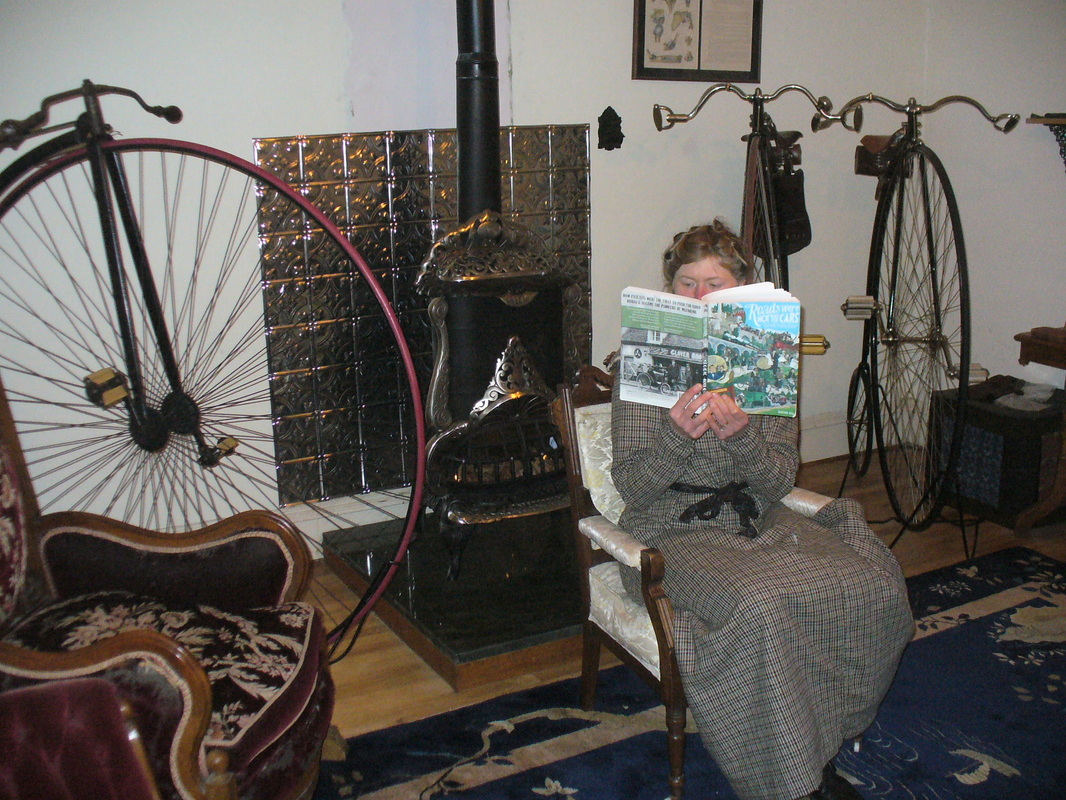
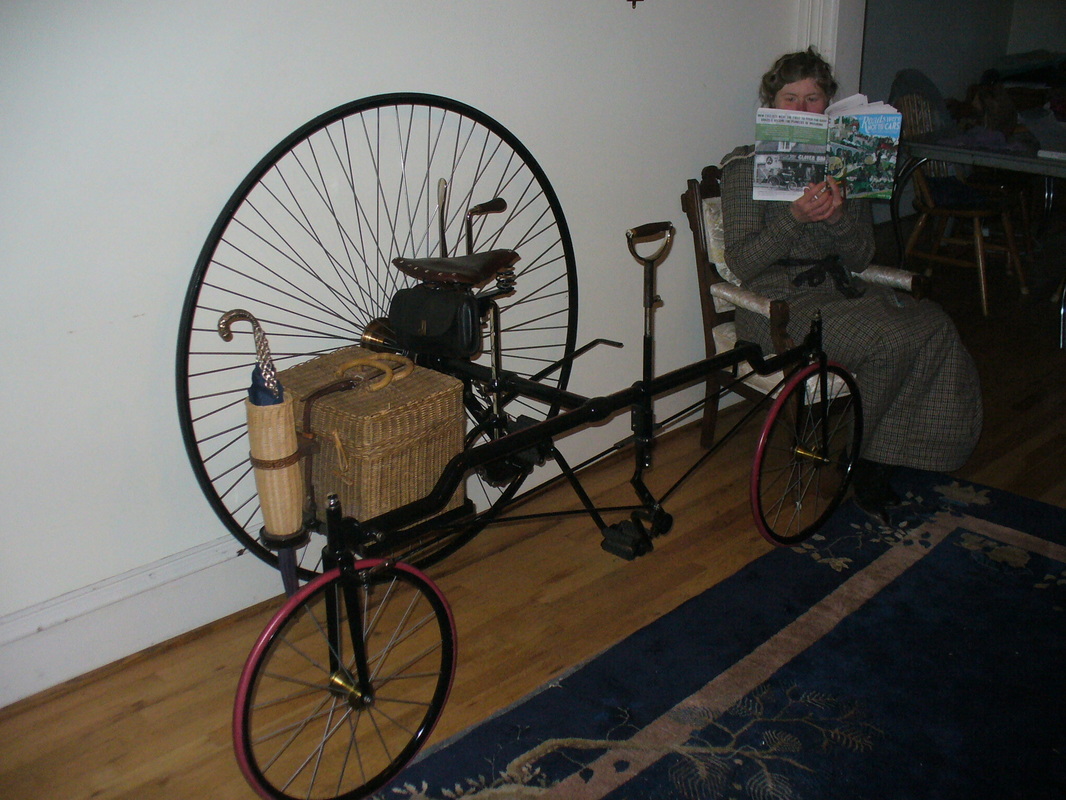
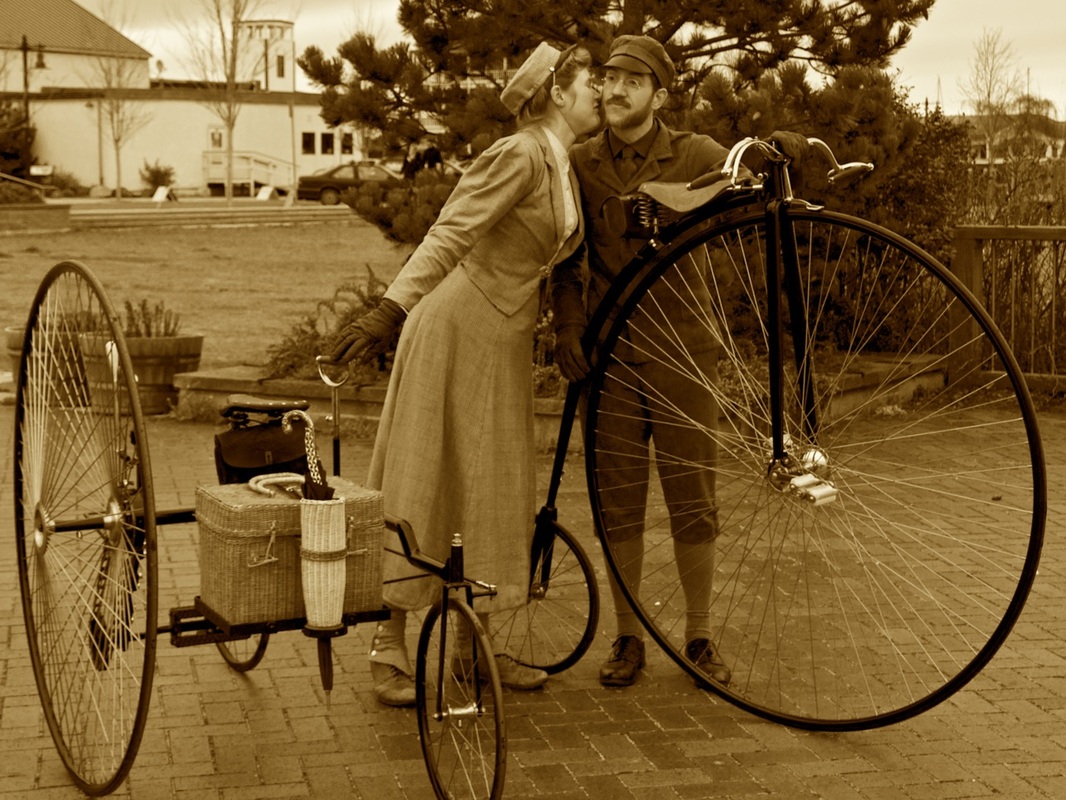
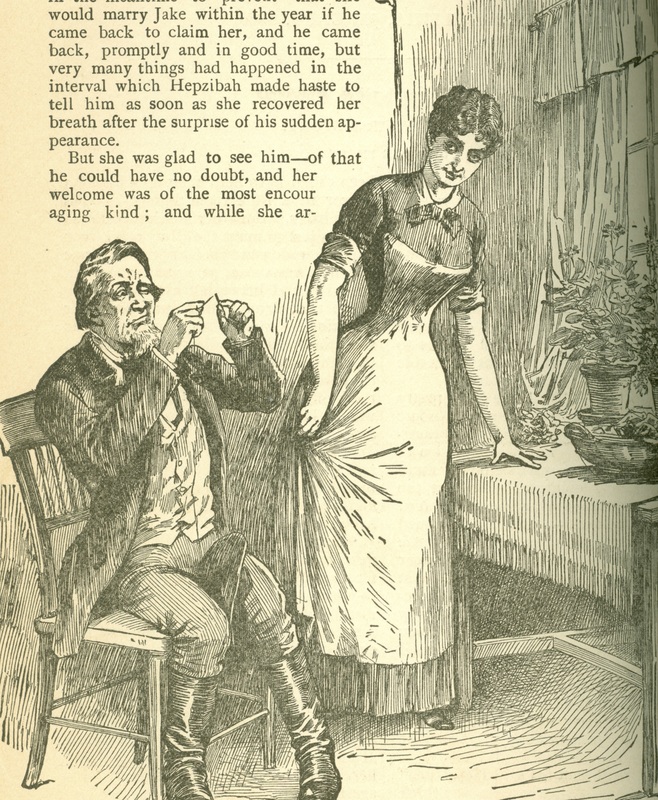
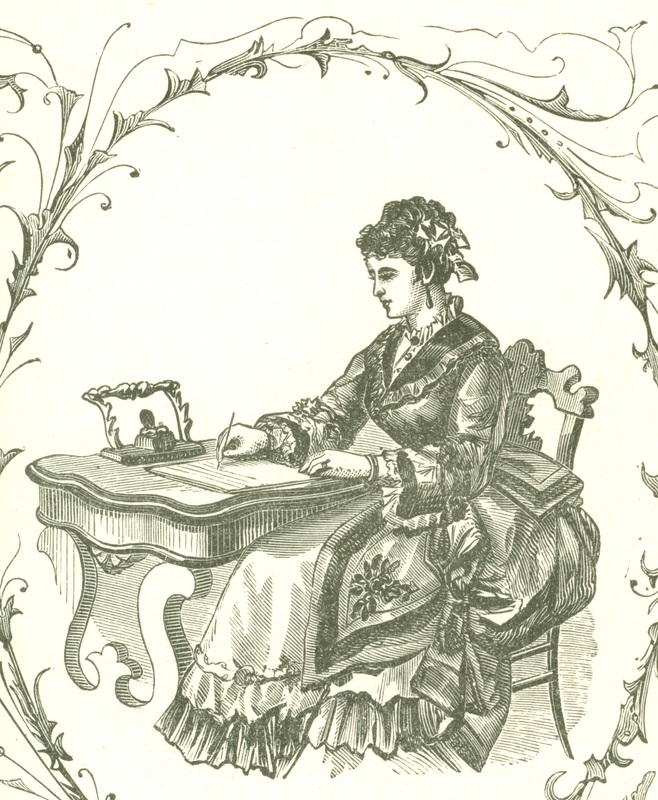
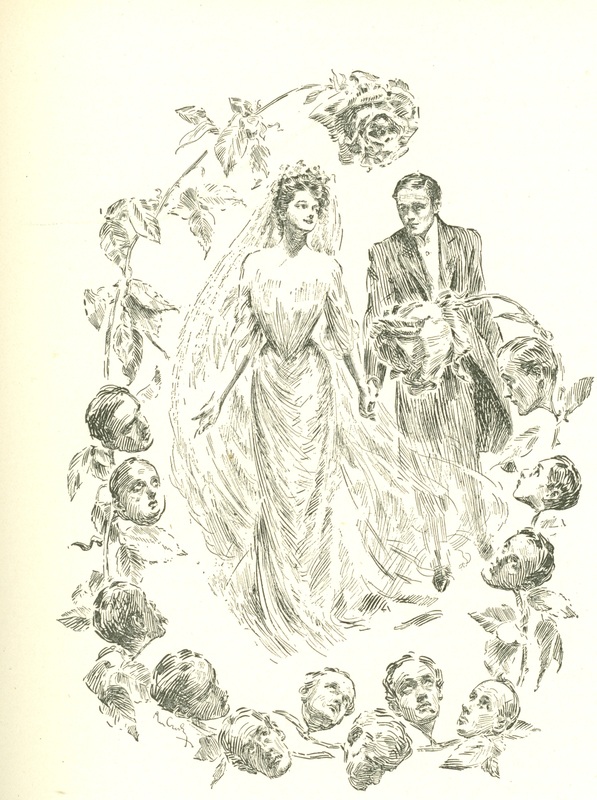
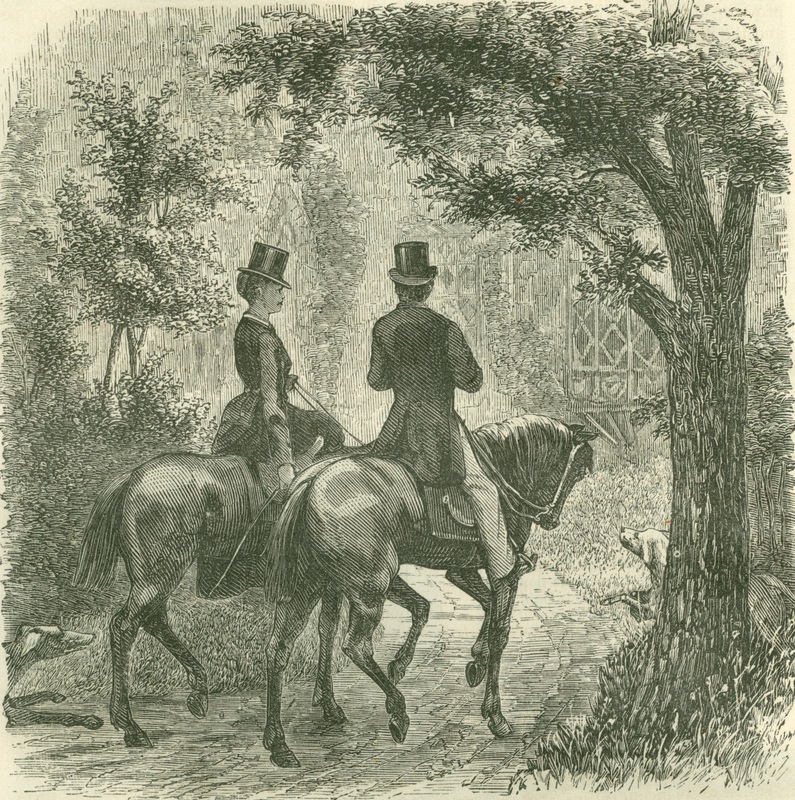
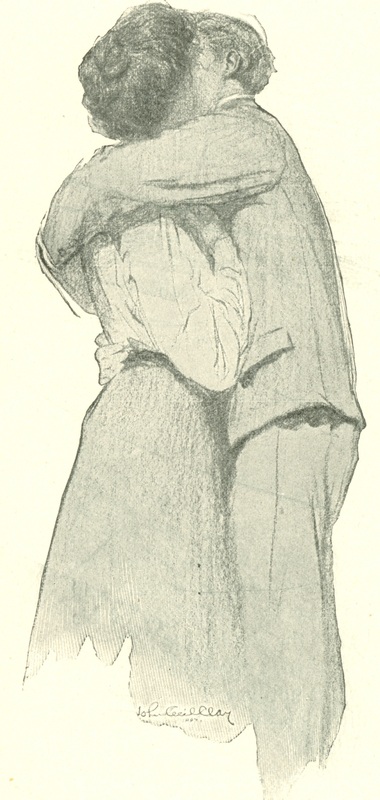
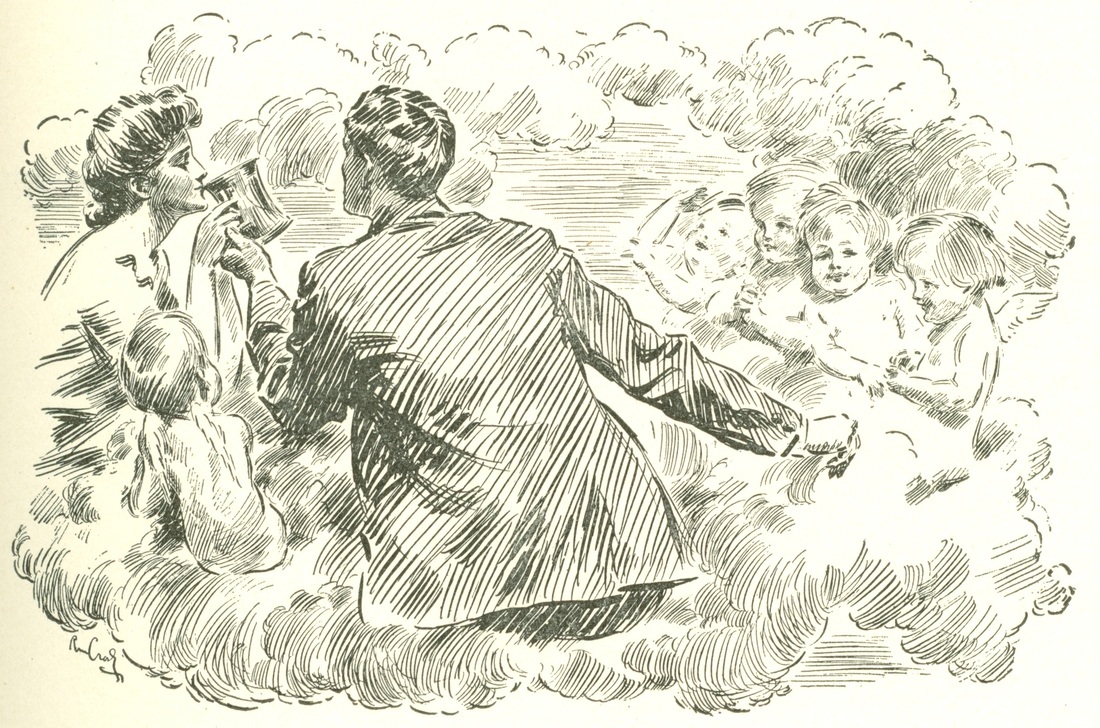
 RSS Feed
RSS Feed